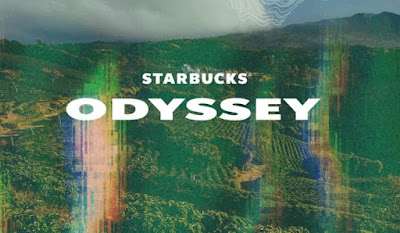In the ever-evolving landscape of
corporate leadership, one thing remains constant: the CEO’s presence is crucial
to a company’s success. Now according to Steven Johnson Grocerant Guru® at Tacoma, WA based
Foodservice Solutions® there are serious fundamental flaws in Starbucks new
leadership lineup.
Yet, with Brian Niccol’s
transition from Chipotle to Starbucks,
we’re witnessing a concerning trend where top executives are seemingly
abandoning the tried-and-true model of full-time commitment in favor of what
can only be described as a “Partly Present CEO.” Niccol’s supercommuting setup,
with one foot in Newport Beach and the other in Seattle, is a recipe for
disaster—and here’s why.
1. Fragmented Leadership Equals
Fragmented Vision
Leadership isn’t just about
making the right decisions; it’s about being there to implement them, to lead
by example, and to inspire a workforce. Niccol’s plan to split his time between
Seattle and Newport Beach, commuting over 1,000 miles on a corporate jet,
creates a fragmented leadership approach. Starbucks, a brand already struggling
with declining same-store sales and customer dissatisfaction, needs a leader
who is fully embedded in its culture and operations. A partly present CEO risks
missing the nuances of day-to-day operations, leading to a fragmented vision
and strategy that could further destabilize the brand.
2. The Cost of Corporate Jet
Setting
Let’s talk dollars and sense—or
in this case, the lack thereof. Starbucks’ decision to accommodate Niccol’s
bi-coastal lifestyle by providing a corporate jet for his commute isn’t just an
extravagant expense—it’s a slap in the face to the company’s stakeholders.
While employees are asked to adhere to hybrid work policies and show up to the
office three days a week, Niccol’s arrangement reeks of double standards. At a
time when Starbucks’ stock has plummeted by over 21 percent and the brand is
hemorrhaging customers, how can this kind of financial irresponsibility be
justified?
3. Erosion of Corporate Culture
The Starbucks culture, once a
beacon of community and connection, is already in peril. With Niccol choosing
to remain largely in Newport Beach, the potential erosion of the company’s
culture is inevitable. Corporate culture is not something that can be maintained
remotely or during brief fly-in visits. It requires a constant, on-the-ground
presence. The shift to a partly present CEO could lead to a disconnection
between leadership and employees, further eroding the “third place” ethos that
Starbucks was once known for.
4. The Illusion of Flexibility
Niccol’s arrangement is being
framed as a modern approach to leadership flexibility in a tight labor market,
but let’s call it what it is: an illusion. Flexibility in leadership should be
about adapting to the needs of the company, not bending the company’s
operations around the personal preferences of the CEO. While the rest of the
workforce grapples with the realities of hybrid work, Niccol’s flexibility is a
stark contrast that could breed resentment and diminish morale within the
ranks.
5. The Danger of Outsourcing
Accountability
A partly present CEO inherently
outsources accountability. By not being physically present, Niccol risks losing
touch with the day-to-day challenges and opportunities that arise within
Starbucks. Decision-making from afar, no matter how connected one might feel
through digital tools, is no substitute for the boots-on-the-ground leadership
that Starbucks desperately needs right now. With declining domestic traffic and
shrinking transactions, Starbucks needs a leader who is not just visible, but
actively engaged in turning the tide.
6. The Risk of Losing Stakeholder
Trust
Trust is the currency of
leadership, and Starbucks is running low. Stakeholders—be they employees,
customers, or shareholders—are already wary after the turbulent tenure of
Laxman Narasimhan. Niccol’s decision to prioritize personal convenience over
corporate commitment could further erode trust at a time when Starbucks can
least afford it. The message being sent is clear: the CEO’s personal life takes
precedence over the company’s future, and that’s a perilous precedent to set.
7. The Supercommuting CEO: A
Short-Term Fix, Long-Term Liability
Niccol’s impressive track record
at Chipotle cannot be denied, but his success there was built on a foundation
of full-time leadership and immersion in the company’s operations. His new
supercommuting role at Starbucks may offer a short-term fix to the company’s
leadership void, but it’s a long-term liability. The demands of a global brand
like Starbucks require more than a part-time presence—they require a leader who
is fully invested, both physically and mentally, in the company’s success.
Think about this, the pitfalls of
transitioning from a full-time CEO to a partly present CEO are glaringly
evident in Niccol’s move to Starbucks. As the Grocerant Guru®, I can tell you
that in the competitive world of food and beverage, leadership isn’t just about
making decisions—it’s about being there to ensure those decisions are carried
out effectively. Starbucks is gambling with its future by accommodating Niccol’s
bi-coastal lifestyle, and it’s a bet that could cost them dearly. The success
of any company hinges on the strength and presence of its leadership, and right
now, Starbucks is being led by a CEO who is only partly there.
For
international corporate presentations, regional chain presentations,
educational forums, or keynotes contact: Steven Johnson Grocerant Guru® at Tacoma, WA
based Foodservice Solutions. His
extensive experience as a multi-unit restaurant operator, consultant, brand /
product positioning expert, and public speaking will leave success clues for
all. For more information visit GrocerantGuru.com, FoodserviceSolutions.US or call
1-253-759-7869







No comments:
Post a Comment